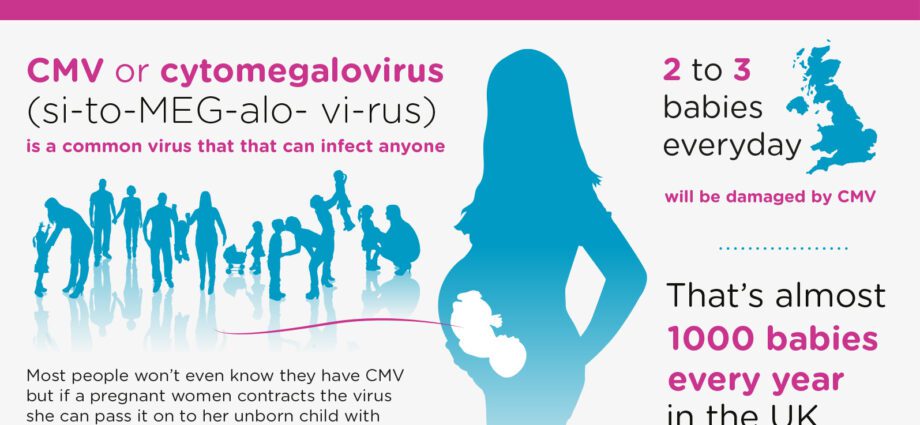Contents
What is cytomegalovirus
This virus is not very well known, however, it is about one of the most common congenital viral infections in developed countries. The virus is especially dangerous for expectant mothers. It is contracted in contact with young children (generally less than 4 years old) and can sometimes infect the fetus. Indeed, when the expectant mother is infected for the first time, she can transmit the virus to her baby. If the mother has had CMV in the past, she is usually immune. It is then very rare that it can contaminate it.
What are the causes and symptoms of cytomegalovirus?
CMV is present in blood, urine, tears, saliva, nasal secretions, etc. It comes from the same family as the herpes virus. It sometimes causes a few flu symptoms : fatigue, low fever, body aches, etc. But the infection usually goes unnoticed.
Cytomegalovirus: How can the virus be transmitted to the baby? What are the risks ?
If the pregnant woman is infected for the first time, the risks are greater. She can indeed transmit the virus to her unborn baby via the placenta (in 30 to 50% of cases). The risk of transmission is higher in first trimester of pregnancy. In the most serious cases, the sequelae can be as follows: deafness, mental retardation, psychomotor deficit… Among the 150 to 270 children who are born each year and are infected, 30 to 60 have clinical or biological abnormalities linked to CMV. * If, on the other hand, the mother-to-be has already been infected, she is immune. Cases of recontamination are very rare and the risk of transmission to the fetus is very low: only 3% of cases.
* Report produced by the Institut de Veille Sanitaire in 2007.
Pregnancy: is there a cytomegalovirus screening?
Today, no screening is systematically performed during pregnancy, except in certain cases. If abnormalities appear on the ultrasound (baby’s growth retardation, lack of amniotic fluid, etc.), it is possible to take a blood test from the mother to see if the virus is present or not. If the result is positive, then amniocentesis is performed, the only way to see if the fetus is also affected. Pregnancy Medical Interruption (IMG) may be performed in severe brain damage.
Is there a treatment for cytomegalovirus?
No curative or preventive treatment exists to date. If the hopes lie in a future vaccination, it is not yet topical. There is only one way to avoid contamination: to respect good hygiene.
Cytomegalovirus & pregnancy: how to prevent it?
No need to panic expectant mothers. To avoid any contamination, it is above all essential to respect a few hygiene rules. Especially for people who are in contact with children under 4 years old : nursery nurses, childminders, nurses, nursery staff, etc.
Here are the rules to be followed scrupulously:
- Wash hands after changing
- Do not kiss a child on the mouth
- Do not taste the bottle or food with the baby’s pacifier or spoon
- Do not use the same toiletries (towel, glove, etc.) and do not take a bath with the child
- Avoid contact with tears or a runny nose
- Use a condom (men can also be infected and transmit the virus to the mother-to-be)










